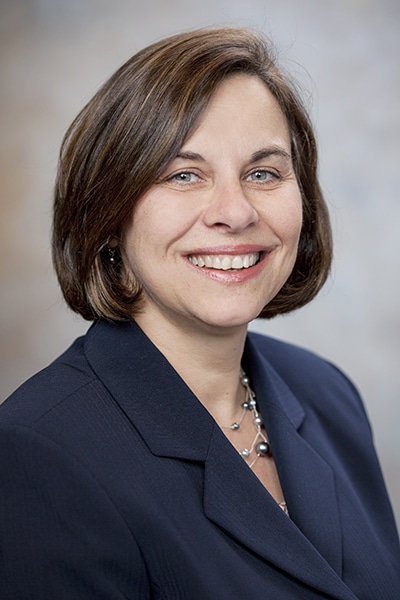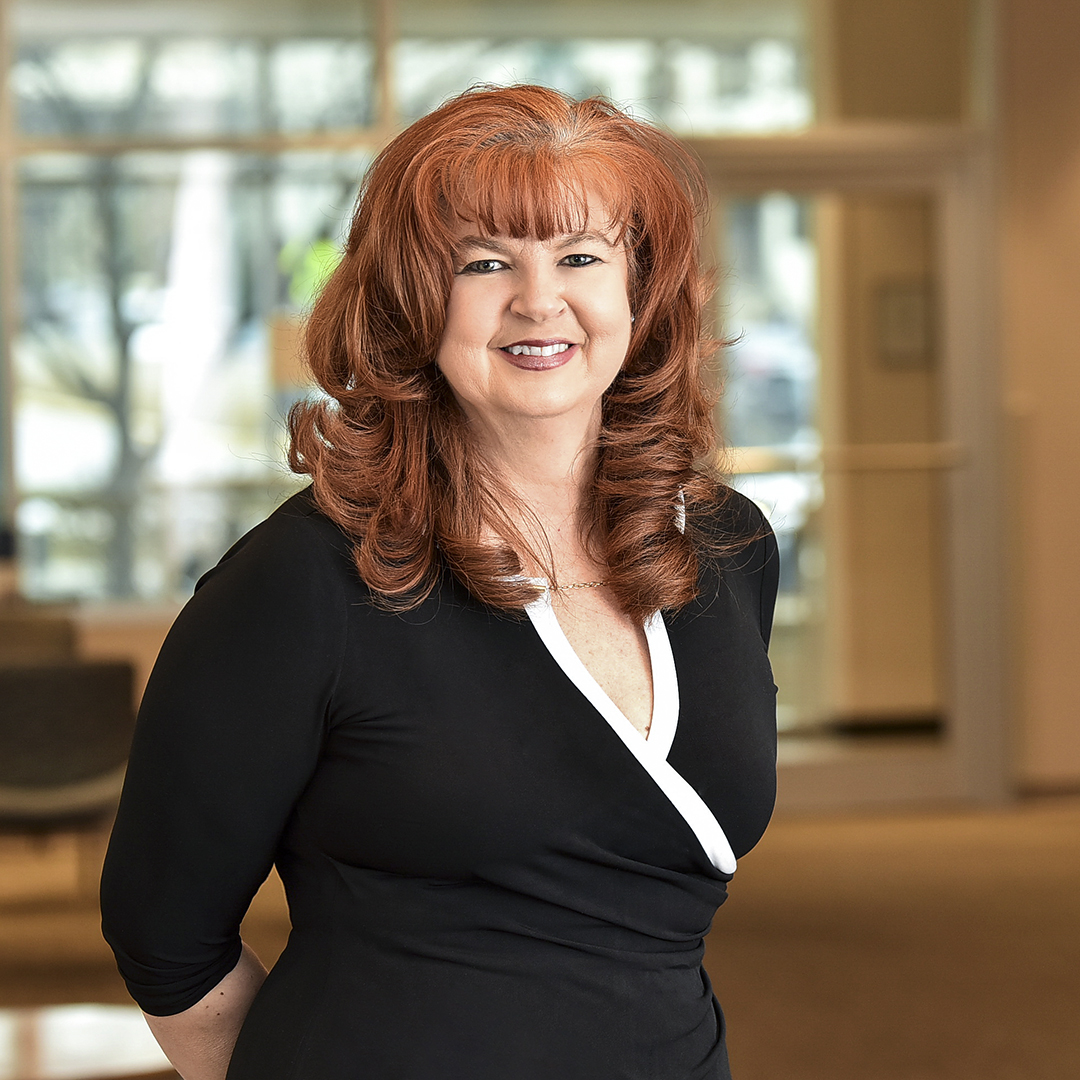Thirty years after joining Yale New Haven Health as a clinical pharmacist, Lori Lee has the responsibility of directing pharmacy operations for her first hospital as well as four others.
She always knew she wanted to work in the medical field, though not as a physician. Her love for chemistry and caretaking led her to pharmacy, and a Yale New Haven representative visited her university as she was finishing her training.
Initially a clinical pharmacist in cardiology, Lee became an educator, developed the pharmacy residency, and then moved into management and began overseeing programs she had helped build. More recently, Lee and leadership have built an outpatient specialty pharmacy and integrated a systematic approach across all five of the system’s hospitals.

“I was the first pharmacist to manage pharmacy in the system; for all five hospitals in the system I’m responsible for pharmacy,” she explains. “We’re the first clinical department in our health system to take this approach.”
She adds, “I’ve had a lot of great opportunities and mentors. This is a great employer for career growth, and I’ve stayed because I was given the opportunity to do so much.”
Lee served as director of pharmacy services before becoming vice president and chief pharmacy officer in 2016. She’s committed her career to standardizing processes across the pharmacy system to serve patients and provide value. Over the years, she’s found ways to expand her contribution, implementing new metrics to manage drug inventory, standardizing procurement processes, and looking across the entire health system.
With a proven record for process transformation, Lee added a role as vice president of corporate supply chain in early 2018. Her mandate is to apply many of the same strategic principles to a new department, standardizing the processes behind every supply acquisition from bandages to high-end joint replacements.
“I’m a natural fit, still networking with the same group of people. That makes my ability to move initiatives a little easier,” she says. “I’m very interested in taking a team of people and allowing them to do the best they can. I’ve done that on the pharmacy side, and I’m convinced I can do it on this side.”
There’s never a perfect moment for major organizational change, especially in a setting as broad and complex as a hospital system. In 2018, Lee’s departments have undergone a massive recruitment effort, and switched to another ERP computer system. Through all of that, Lee has also been examining and refreshing the entire supply-acquisition process.
There are important differences between pharmacy and device supply. For example, provider preference plays a larger role in the latter, so Lee’s department has to gather and act on physicians’ feedback. Lee’s value-analysis team takes a deliberative approach to those decisions.
Lee explains, “The team attempts to uncover any data points on a medical device and look at other devices that may be out on the market in a logical way.”
She adds, “We have to engage the physicians and their expertise, so we deal a lot with the surgeons. That’s our primary customer, followed by cardiology. Those are two very big areas that use our high-end products.”
Lee’s consultants have suggested that the department could be more cohesive and interoperative. In response, leadership has created a new governance structure and is now building up the department through internal and external recruitment. The staff is responding to the clarity of this strategic vision and momentum is building, she says.
At first, Lee hesitated at the unfamiliar subject matter. But since her debut in the role, she’s relied on the same leadership and management principles as she did overseeing pharmacy. A great leader needn’t also be a subject matter expert, she says, as long as they have the right resources and flexibility around them. When she started she knew “just enough to be dangerous,” as she puts it. Now, she’s learned that listening skills and networking make the difference.
But for Lee, who’s overseen enormous departmental transformation in this same hospital system, patience is the new greatest challenge.
“I feel good about what we have done in the past year, but I always want to be further along,” she says. “What we built on the pharmacy side has taken years. We have phenomenal team members and processes, but it didn’t happen overnight. Here, we’re starting that all over. We have work ahead of us.”
When device supply is eventually slick and systematic, other clinical departments can benefit from the same strategic approach.
‘‘If I can do that here, I can continue to expand my scope as long as it benefits the health system,’’ says Lee. “At the end of the day, I’m a clinician and a pharmacist, so we have to make the decisions that benefit our patients.’’

